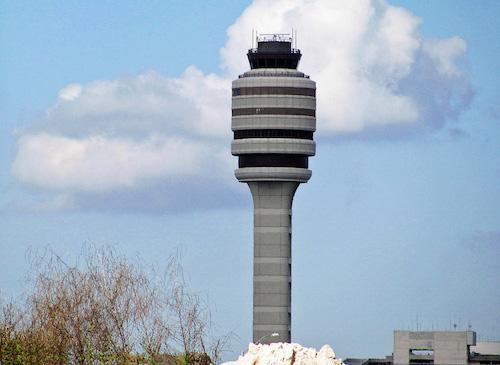ATC Reform Controlled by Unions

By Olivia Grady
On March 8, 2017, the Subcommittee on Aviation of the Committee on Transportation and Infrastructure hosted a hearing at 10 am in the Rayburn House Office Building. The hearing was titled “Building a 21st Century Infrastructure for America: Air Transportation in the United States in the 21st Century.” Chairman of the Subcommittee Frank Lobiondo led the meeting.
Five witnesses testified. The first speaker was Brad Tilden, Chairman and Chief Executive Officer of Alaska Air Group, Inc. Mr. Tilden was supportive of ATC reform including separating ATC operations from the FAA and into a nonprofit corporation. He also stressed the importance of the U.S. Open Skies policy and the need to modernize the system to use the navigation structure during the approach phase of flights.
The second speaker was Russell Childs, President and Chief Executive Officer of SkyWest, Inc. He spoke about the regional airline industry and supported implementing the Next Generation Air Transportation System. He also urged Congress to pass a bill that would help pilots with the costs of training.
Joseph Hete, President and CEO of Air Transport Services Group, Inc., was the third speaker and was opposed to changing the flight and duty time rules that apply to all-cargo carriers. He said this change would help unions, but would hurt everyone else. He was concerned about costs rising with the suggested ATC reform.
The fourth speaker and the most relevant to CWF’s work was Sara Nelson, the International President of the Association of Flight Attendants (AFA). This association or union is part of the Communication Workers of America and the AFL-CIO. The union represents 50,000 flight attendants from 19 airlines. It hopes the Norwegian Cabin Crew Association will vote to form the twentieth chapter.
AFA would like longer rest requirements for its flight attendants (more than 10 hours) and a fatigue risk management plan. It also calls for the prohibition of voice calls during the flight to continue, increased compensation for flight attendants serving regional airlines, and the U.S. to ensure that subsidized international airlines aren’t hurting American airlines.
The union would also like other provisions related to labor that were included in last year’s bill. Some of these provisions include:
“Revisiting evacuation standards, notification for insecticide application, the ban on e-cigarettes, flight deck secondary barriers, a permanent ban on knives, cyber-security provisions, penalties for assault on customer service agents consistent with that of crewmembers, and a ban on voice communications in the aircraft cabin.”
Ms. Nelson also criticized former President Obama for granting a foreign air carrier permit to Norwegian Air International (NAI). NAI set up an Irish subsidiary to avoid costly labor regulations, and Ms. Nelson claimed this was “a threat to U.S. jobs and aviation” and to safety and security. She mentioned that foreign government airline subsidies also hurt the United States.
The final speaker was Charles Leocha, the President of Travelers United. He supports forcing airlines to advertise the whole price of a ticket, just as other common carriers are forced to do. Passengers should also be allowed to reuse their tickets if there is an information technology failure, and businesses close to airports should have to pay passenger facility charges.
After all five witnesses spoke, Representatives had an opportunity to ask questions. They asked questions of the witnesses, restating much of what the witnesses had already said and giving their own opinions. For example, Ms. Nelson spoke during the questions about NAI tricking the public and how low flight attendant pay is.
In a surprising statement at the end of the hearing, Ranking Member of the Committee Peter DeFazio said, “Nobody wins in a race to the bottom.”
The Center for Worker Freedom believes that freedom and competition produce the best results, not monopolies controlled by unions.





